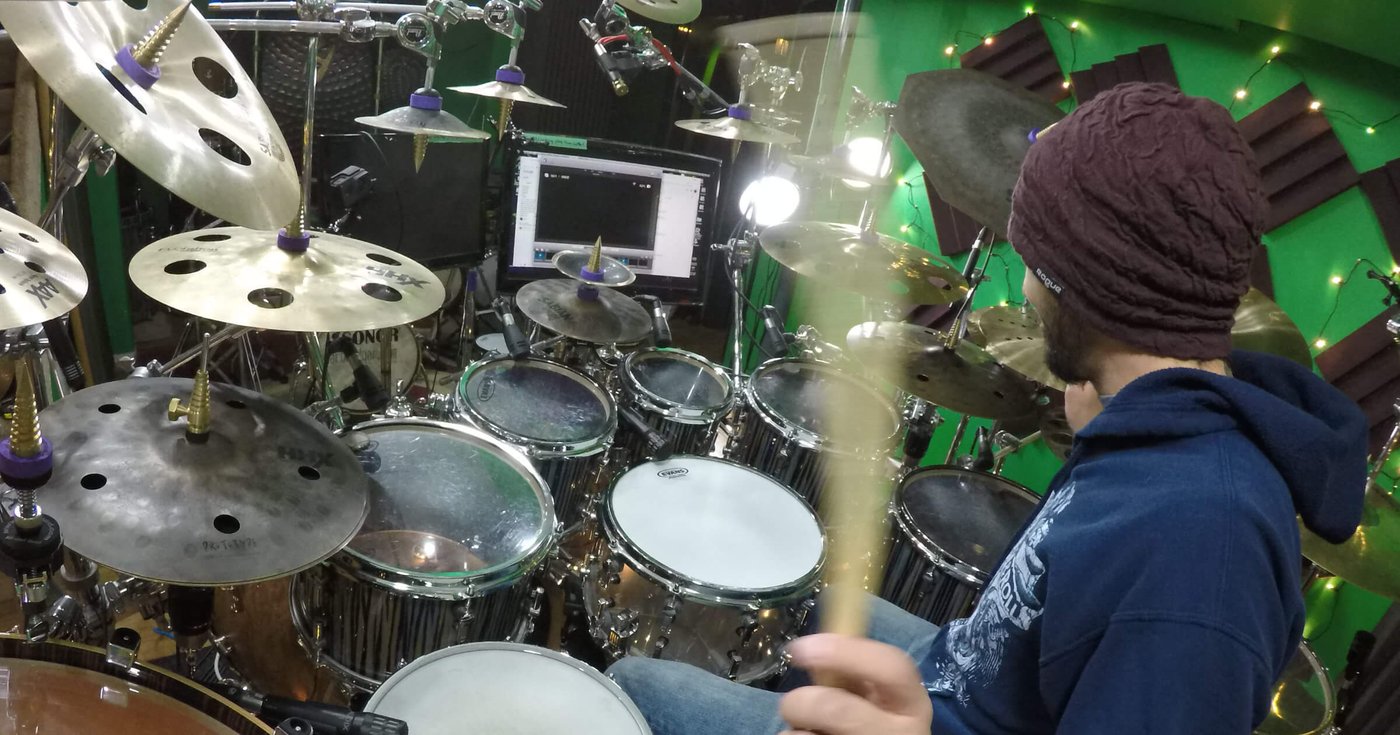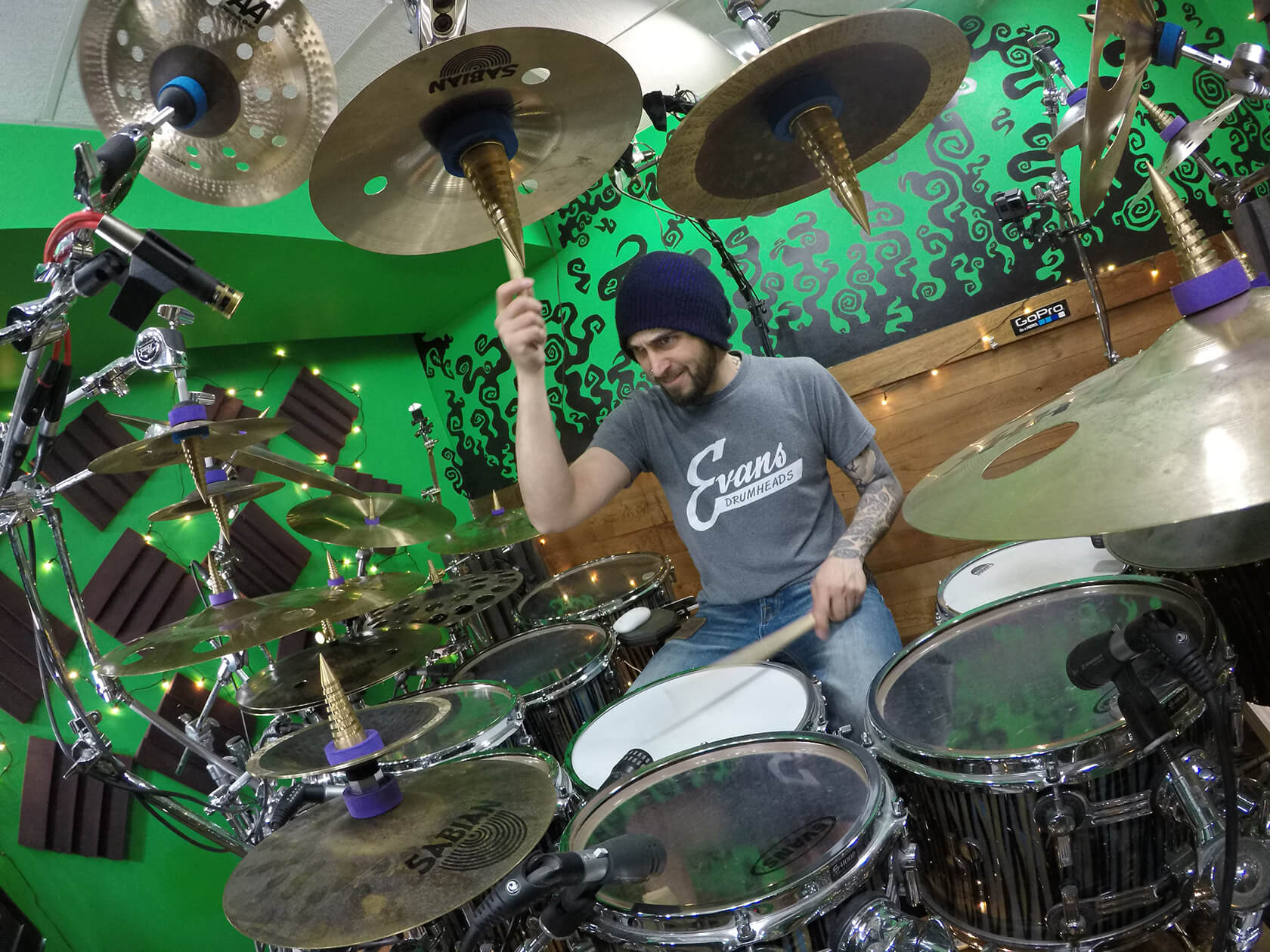
As someone whose job it is to explore the outskirts of rhythm theory, one of the things I hear the most is “Where am I ever going to use this?” There’s some validity to that question, but I feel this type of negative spin is counterproductive to pushing music forward as an art form. Some people seem to immediately dismiss anything that doesn’t automatically fit within their narrow framework of ‘acceptable’ music. It can even go as far as to offend people when something doesn’t seem to make sense, or when it takes too much effort to find the pattern within.
In his book Effortless Mastery, Kenny Werner says “Without preconceptions, you could handle and enjoy much more chaos in music.” Clinging to ideas of ‘right’ and ‘wrong’ creates knee-jerk reactions to ‘wrongness.’ It’s fine to not like something, but keeping an open mind and searching for the beauty within the ‘wrongness’ yields rewards that are hard to exaggerate. Scattered rhythms eventually feel like amazing syncopations when you understand them deeply enough.
For me, exploring the unknown is utterly fascinating. It’s even more fascinating when I can’t immediately see where it’s usable. At that point, it starts to feel like a game! What kind of musical statement could I create with this? How can I phrase it so the listener hears this as I do? After all, notes are just notes. No matter how twisted or insane the rhythm is, there’s an underlying pulse that we can all relate to if you break something down far enough.
Here’s another insightful quote from Effortless Mastery:
“The visionary is often regarded as a heretic and the devil’s tool. Through the force of his will and his sincere need of more intensity in the music, the musical visionary has convinced us time and time again that these dissonances were the new right notes. The heresy of the 14th century became the conventional wisdom of the 15th century.
So the question is: if the notes sounded wrong and unusable in the 14th century, how did they become desirable in the 15th century? The answer is that they were never wrong! We just heard them that way. Hence, the truth: there are no wrong notes.”

I take this quote as encouragement for exploring the territory of the ‘wrong.’ After all, you can’t break new ground, or have any hope of finding “the new right notes” by staying exclusively within the territory of the known. I’m not suggesting that everybody needs to follow this path. For those who do – and experience negativity, resistance, or even ridicule over their ideas – know that art needs you. There will always be people who aren’t into it; just don’t let that stop you from exploring!
You may come up with ideas that, even after putting in hard work, end up still not sounding like much. That’s part of the game: you’ve got to dig through some dirt before you can strike gold!
At the end of his most recent book, Double Bass Drum Freedom, Virgil Donati puts it this way:
“For the integrity and progress of our art form, I feel that it is the performer’s absolute responsibility to play new music, to apply new ideas.
We must constantly renew our musical ideas. A lot of emphasis is placed today on being accessible, but in retrospect, all the interesting and great works of art have always been created in an uncompromisingly modern language. Some of this may come across as musical, or artistic arrogance, but I don’t feel that. It’s a creative necessity to move forward.
Don’t dilute your musical vision, be bold.”
Those words perfectly embody my most profound reasons for playing music in the first place. The things that have always made me light up inside have been when I’m stumbling upon something new. Even if it’s only new to me, that feeling of discovery is the creative fuel that gets me out of bed in the morning.
I hope this article inspires you to go to your instrument and explore things that are unfamiliar to you. There’s nothing like the feeling of breaking new ground. It’s addictive in the best possible way. You may even discover some new right notes along the way.
Aaron Edgar is a dynamic and innovative drummer renowned for his technical prowess and creative approach. With a career spanning over a quarter century, he has significantly impacted the drumming community as an educator, performer, and author. His work with the progressive metal band Third Ion showcases his ability to blend intricate rhythms with powerful grooves. Aaron's contributions to drumming education are extensive, including over a dozen years at Drumeo, his role as a columnist for Modern Drummer, and his instructional book "Progressive Drumming Essentials" Additionally, he served as Editor In Chief of Drums Etc. magazine and is a sought-after clinician worldwide. Aaron's passion and dedication continue to inspire drummers of all levels, solidifying his place as a leading figure in modern drumming.


By signing up you’ll also receive our ongoing free lessons and special offers. Don’t worry, we value your privacy and you can unsubscribe at any time.
We use cookies for traffic data and advertising. Cookie Policy »